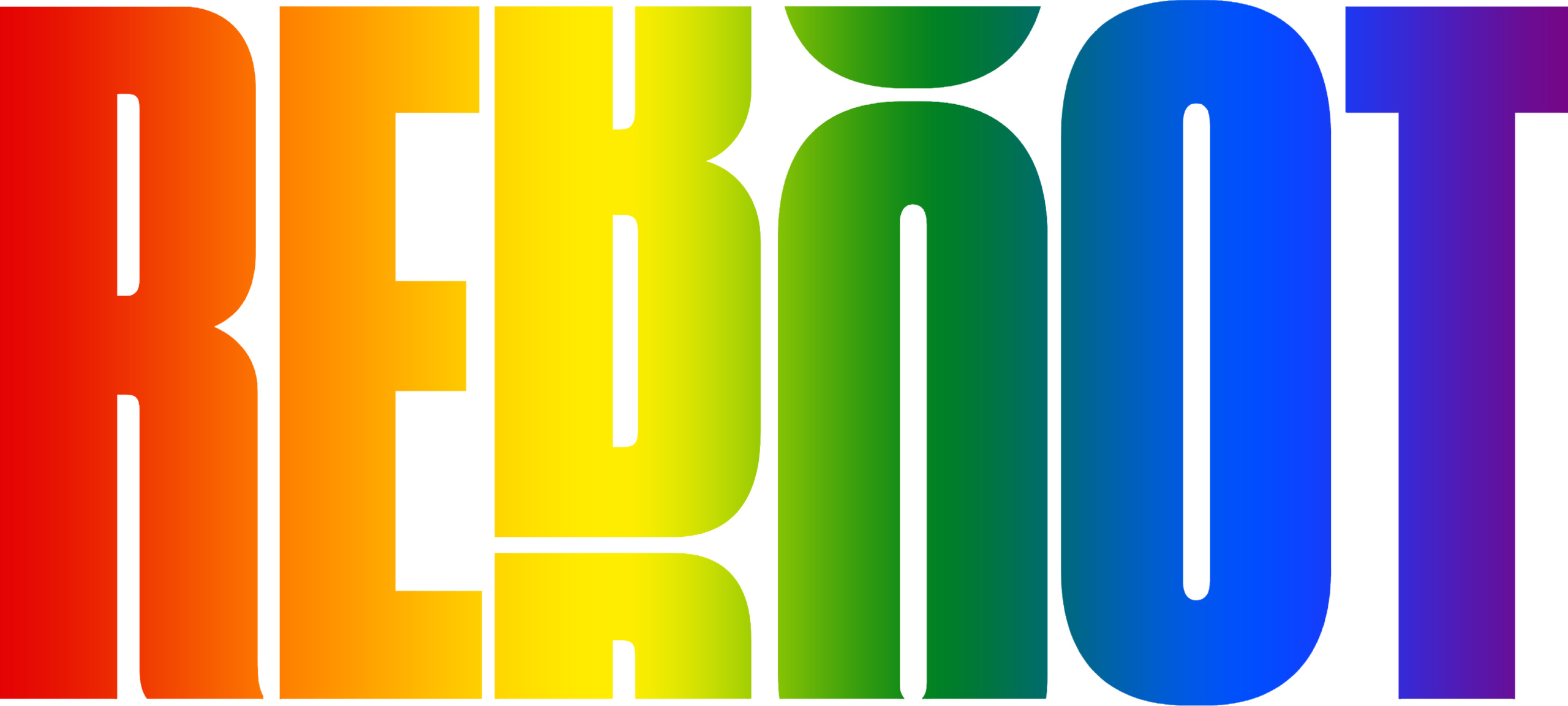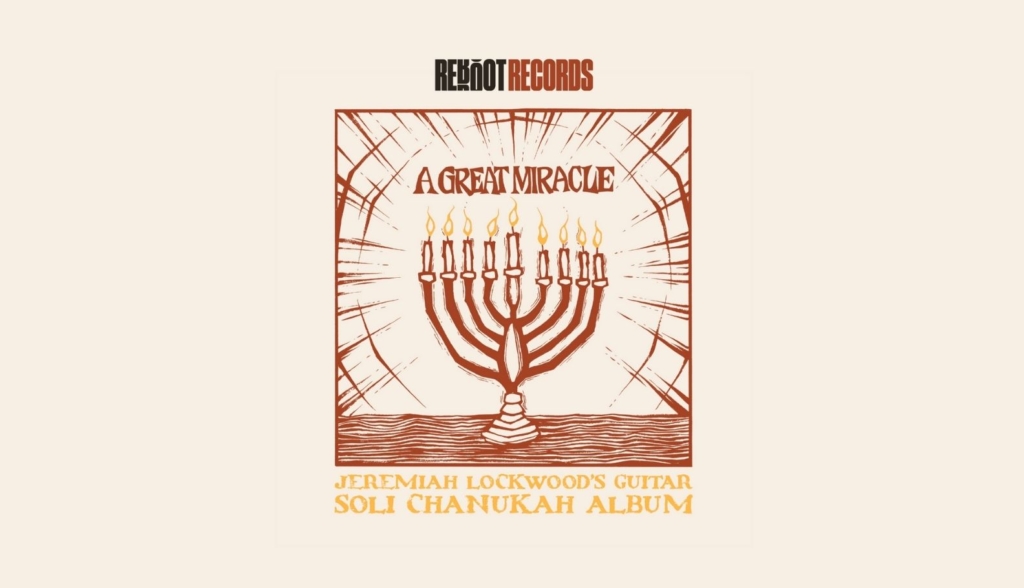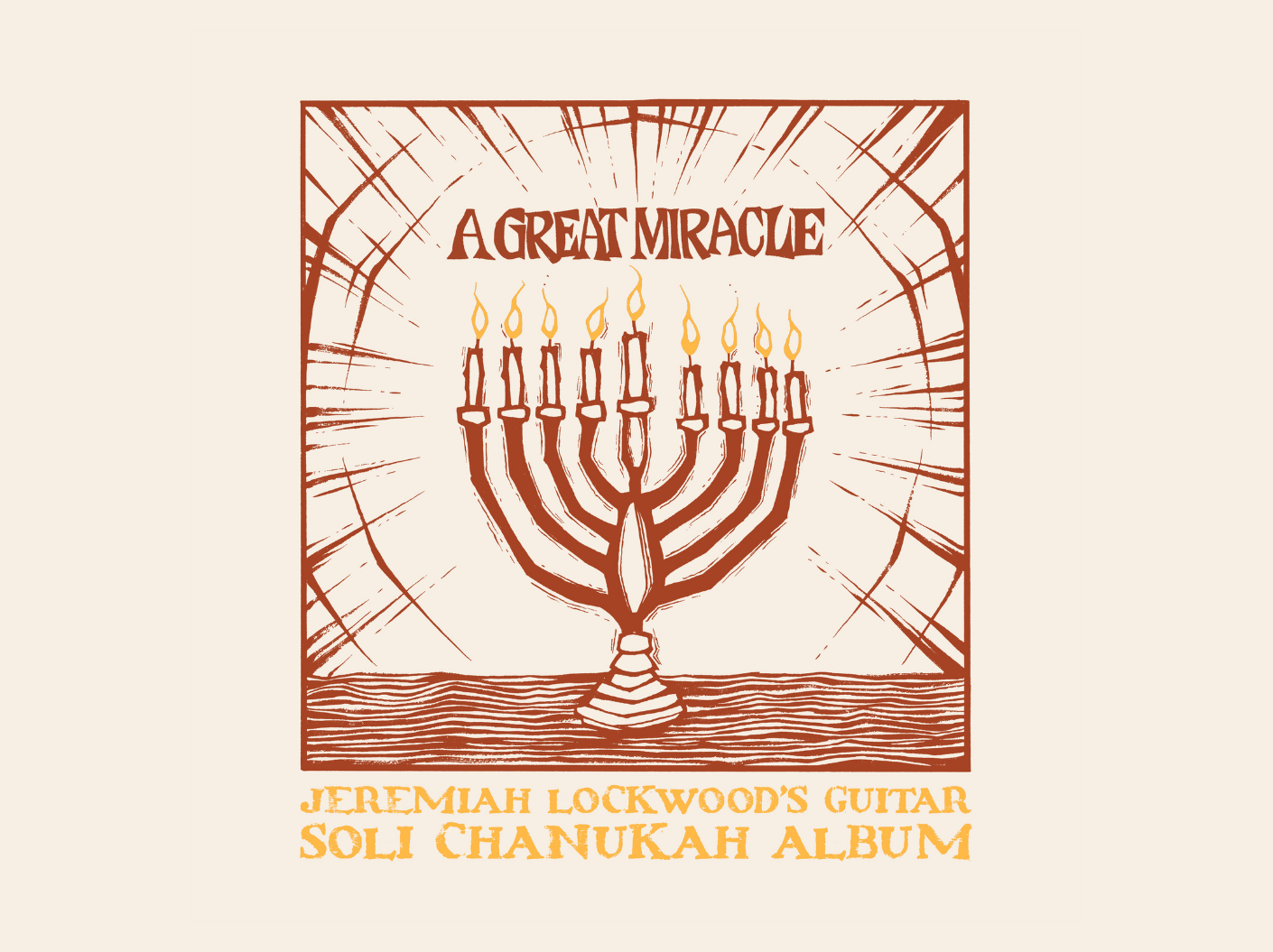Jeremiah Lockwood on A Great Miracle: Filling a Societal (and Personal) Need

See Jeremiah Lockwood perform his new album live at Sweetwater in the Bay Area, Nov. 28; at Der Nister in Los Angeles, Nov. 29 and at Relix Studio in New York, Nov. 30. Or watch a live stream of the New York concert on Twitch. Find out more about the shows and the album here.
The Chanukah Record : Filling a Societal (and Personal) Need
Speaking with musician Jeremiah Lockwood is an unusual experience. During a conversation, he often strums his guitar, occasionally flowing into a verse or a chorus to illustrate a point. And the conversation feels like a journey through the intertwining nature of the history and experience that shapes his music.
On Nov. 22, Lockwood and Reboot Records will release a Chanukah record that is sure to become a standard in holiday’s lexicon. A Great Miracle: Jeremiah Lockwood’s Guitar Soli Chanukah Record is a beautiful solo guitar tribute to the holiday. With heartfelt appreciation of the 1968 classic The New Possibility: John Fahey’s Guitar Soli Christmas Record, Lockwood has sweetly crafted eight songs, one for each night of Chanukah, to celebrate the dancing candlelight with his new, blues-inspired takes on the most beloved melodies of the holiday’s canon. From the prayers for lighting the candles to the kids’ songs that are sung around the burning menorah, Lockwood paints the light through the darkness with his instrumental creations.
Armed with a both a PhD in Education and Jewish Studies from Stanford with an individualized Masters in Ethnomusicology and a musical career rooted in both solo work as well as with his musical project, the Sway Machinery, Lockwood’s music weaves a rich tapestry rooted in both the present day and a benevolent look to the past.
Reboot Editorial Director Todd Krieger spoke with Lockwood about the album and his influences.
(This transcript has been edited for clarity and brevity.)
Jumping right in, how does music combine with academia?
I have things I want to say with music. I didn’t feel that I was going to be able to do full justice to the stories I wanted to tell with only having one set of tools for it.
I want to talk about the history of music, where I imagine it going. What is the experience of creativity? How are creative processes borne out of history and express group identities and also express rebellion against the superimposition of narrow identities on people. I feel like Jewish music is a story of rebellion and return.
What do you mean by rebellion and return?
Music is one of the points of friction and interface for the Jews and the world around them. The classic anti-Semitic calumny against Jews is that they have no music of their own and they steal the music of those around them and in some way corrupt it or demean it. One can be forgiven for thinking this way, Jewish music is a process of borrowing. Appropriation and assimilation are very major parts of Jewish music.
There is an internal and intimate place in the sounds of the synagogue The synagogue is a place where Jews experiment with different identities through music, and that process has been jacked up over the last 200 years. Within the historical process of emancipation and reform and retrenchment of separatist orthodox identities, music has played a major role in all those processes.
Jewish music is one of the places of the most aggressive assimilation and at the same time one of the deepest intimacy, recognizing the Jewish individual self through sound.
I’m currently turning my thesis into a book, and writing a weekly blog for UCLA. It is a recurring column about the Brooklyn music scene.
Tell me where the inspiration for this album came from?
I’ve been working on it for years, playing Chanukah songs on acoustic guitar at family gatherings.
My(non Jewish?) mother-in-law at the time loved the John Fahey Christmas record – that is their holiday – that is their Christmas record. This is the sound of their home for the holidays…
What do you hope to achieve with this album?
People want there to be a Jewish parallel to the onslaught of Christmas music…A lot of Christmas music is quite good. There is a hole in American Jewish culture around this. It is a practical record in a way, it meets a social need in a way.
What did you discover about your own feelings about this music?
It is not totally new territory for me. I’ve been playing with this set of ideas, the wistfulness of being on the inside and the outside of this at the same time. Sweetness, melancholy, nostalgia. It is nostalgia for growing up and being with my grandparents. Chanukah was like a cantorial concert. My grandfather was a great cantor. My uncle was as well and so was my cousin. There’s a lot of that in this record.
Tell me more about this inside and outside…
I’m seeking to find sociality that meets the needs of both groups. This is not a story that has an ending. The answers that have come so far have been unsatisfying. Either separatist or assimilation.Falling right on top of the biggest American holiday,Christmas has a very specific vibe in American life. It’s Christian, a celebration of Capitalism, collapsing of family, faith and commercialism. Your head will spin from all the associations. Chanukah is a small one, getting Chanukah to catch up to American Christmas is a tall order. We make this holiday do a lot of extra laps around the field.
Buy the album here.
Jeremiah shared his inspiration and influences for the album with us:
Track by Track Listing
Ritual – Influenced by Shira Kline. The track moves in two directions at once. On the one hand, the song talks about intimate sounds of Jewish life and tries to capture the feeling of the Chanukah ritual when I was a child in my grandparents’s house, with the whole extended family harmonizing beautifully as we sang the brachos over the mystical glow of the candles. On the other hand, the arrangement and the vibe of the guitar style, an homage to John Fahey, is a deep dive into the world of American Christmas. Like a lot of Jews in America, I love Christmas, despite my own discomfort with it–the bright and shiny bell-like sounds, the children’s wonder at miracles, and the transubstantiation of materialism into love through the rituals of presents and consumption…it’s intoxicating, pleasurable and authentically joyful. I can’t say if this is a Jewish Christmas song (like White Christmas) or a christologized Chanukah song; that distinction is in the eye of the beholder. Either way, my hope is that this song, and the whole album, honors the feeling and the meaning of both sources: the American Christmas that for better or worse is part of the shared culture of the country, and the Jewish intimacy of home, ritual and eternity.
Al Hanisim– Influenced by the Malavsky family – mid Century. The father was one of the great cantors. He started a choir with his kids, which is kind of controversial. His daughter Goldie was one of the great voices of the mid-century. My grandfather had his own take on it. This guitar arrangement is coming out of that. https://youtu.be/PNttKPrV-ys?t=207
My Yemalel – Israeli Chanukah song – the American songs on this record are actually Israeli. The old school cantorial pieces or the ones that are part of the ritual music have more of an Old school European vibe.
The kid songs, those are all Israeli. The Jewish elementary sound was dominated by a Zionist narrative getting your Jewishness and sense of pride from Israel. My uncle was a cantor in a conservative synagogue and would bring them to our Chanukas. They’re part of the sound I’m building out, an Al Farkhe Toure sound. The song itself was influenced by The Weavers (https://www.youtube.com/watch?v=PAe6isGj9m8) and this arrangement by Ali Farkhe Toure (https://www.youtube.com/watch?v=5CrwLL8f3DA)
Al Hanisim Izhar Cohen – Another Israeli piece. In Jewish music for the same texts there are hundreds of different melodies. Al Hanasim is a special text used on Chanukah, it is almost the same as one used for Purim as these two holidays have in common, miraculous reversals of fortune. “Because of the miracles” is what it means. This Al Hansim is from this kitschy festival called the Israeli Chasidic Song festival which is a big pop phenomenon in Israel. It’s kind of an annoying song but it is tattooed in the memory banks and part of the repertoire. (Influenced https://www.youtube.com/watch?v=CW3uU0QQwjQ ) Arrangement inspired by Doc Watson https://www.youtube.com/watch?v=cw2Dn9a8sQ4
Maoz Tsur – It is not the famous Maoz Tsur. This is a Cantorial piece by Pierre Pinchik, one of the great Golden Age cantors from a record he made in the 20s. It is one of his most famous pieces actually. Pierre was a stage name. His Maoz Tsur – super theatrical, nearly operatic aria moves in time, complicated little piece. I approached it as a classical guitar etude. It was cool working on it and hopefully it came out like something. https://www.youtube.com/watch?v=3wUeE59_XPA
Little Dreydl – This is a bit of an homage to Reverend Gary Davis. Influenced by Theodor Bickel (https://www.youtube.com/watch?v=PZgCxCmifP4) Arrangement inspired by Rev. Gary Davis (https://www.youtube.com/watch?v=Wcc88lygeI0).
Drey Dreydl – Moshe Osher. Super kitschy, of that vintage. Star of Yiddish theater and Yiddish cinema. Super banger Chanukah hit.
Drey Dreydl – Moishe Oysher (https://www.youtube.com/watch?v=s_Cc3btDedI) and arrangement inspired by Skip James (https://www.youtube.com/watch?v=YlvaHEXP7NU)
Chanuka oy Chanuka – written by a guy who emigrated to Palestine before the state of Israel. Originally written in Yiddish. I like Yiddish, I’m a fan of the language. I may eventually do a version of this record singing this song (vs. the entirely instrumental nature of the current record). Incredibly nostalgic, it becomes beautiful through its associations, trying to bring this out. The wistful melancholy retrospective glance, the times that were, the childhood gone. https://www.youtube.com/watch?v=URcpUqLW8NY (Klezmer Conservatory Band) and arrangement inspired by Boubacar Traoré (https://www.youtube.com/watch?v=OMhWV1YjeMk)


